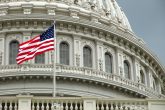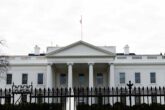February 24, 2020
For House, Senate National Security Committees, Stopgaps for Term Limits
Parties Are Unlikely to Change Term Limits, But There Are Options
The primary election season for the next Congress opens officially on March 3, as states from California to Arkansas begin counting votes for candidates vying for seats in the U.S. Senate and House of Representatives. But many ballots will not include the names of dozens of incumbents who have opted not to seek re-election. For some of them, especially Republicans, party-imposed term limits for their committee leadership positions played a key role in their decisions.
Such decisions illustrate how party term limits that have been in effect since the 1990s for committee chairs and ranking members prevent members of Congress from leveraging the full extent of their experience for better oversight, including on committees with jurisdiction over U.S. national security policy. While the two main political parties appear unlikely to change such term limits soon, there are alternatives. Congress should pursue reasonable adjustments to better leverage the experience of their longest-serving members, especially in national security oversight.
President Donald Trump has even entered the debate over term limits for congressional committees. “House Republicans should allow Chairs of Committees to remain for longer than 6 years,” Trump wrote in September. “It forces great people, and real leaders, to leave after serving.”
Read the full article in Just Security.
More from CNAS
-
Enhancing Congressional Intelligence Committee Effectiveness
In a new working paper, Carrie Cordero provides a fresh assessment regarding whether the intelligence committees in Congress need significant structural reforms, assesses whic...
By Carrie Cordero
-
Sharper: National Security in a Divided Congress
Following the 2022 midterm elections, a new U.S. Congress was sworn in, resulting in a divided House and Senate with narrow margins. Key national security legislative items ar...
By Anna Pederson & Cameron Edinburgh
-
Schedule F: An Unwelcome Resurgence
The U.S. government is able to take on high-risk, high-cost ventures—nuclear security, pandemic response, environmental clean-up, food safety, and more—because civil servants ...
By Loren DeJonge Schulman
-
Western Hemisphere Migration is a Long-Term Challenge
Addressing western hemisphere migration should be a national and international priority....
By Carrie Cordero & Cris Ramón




